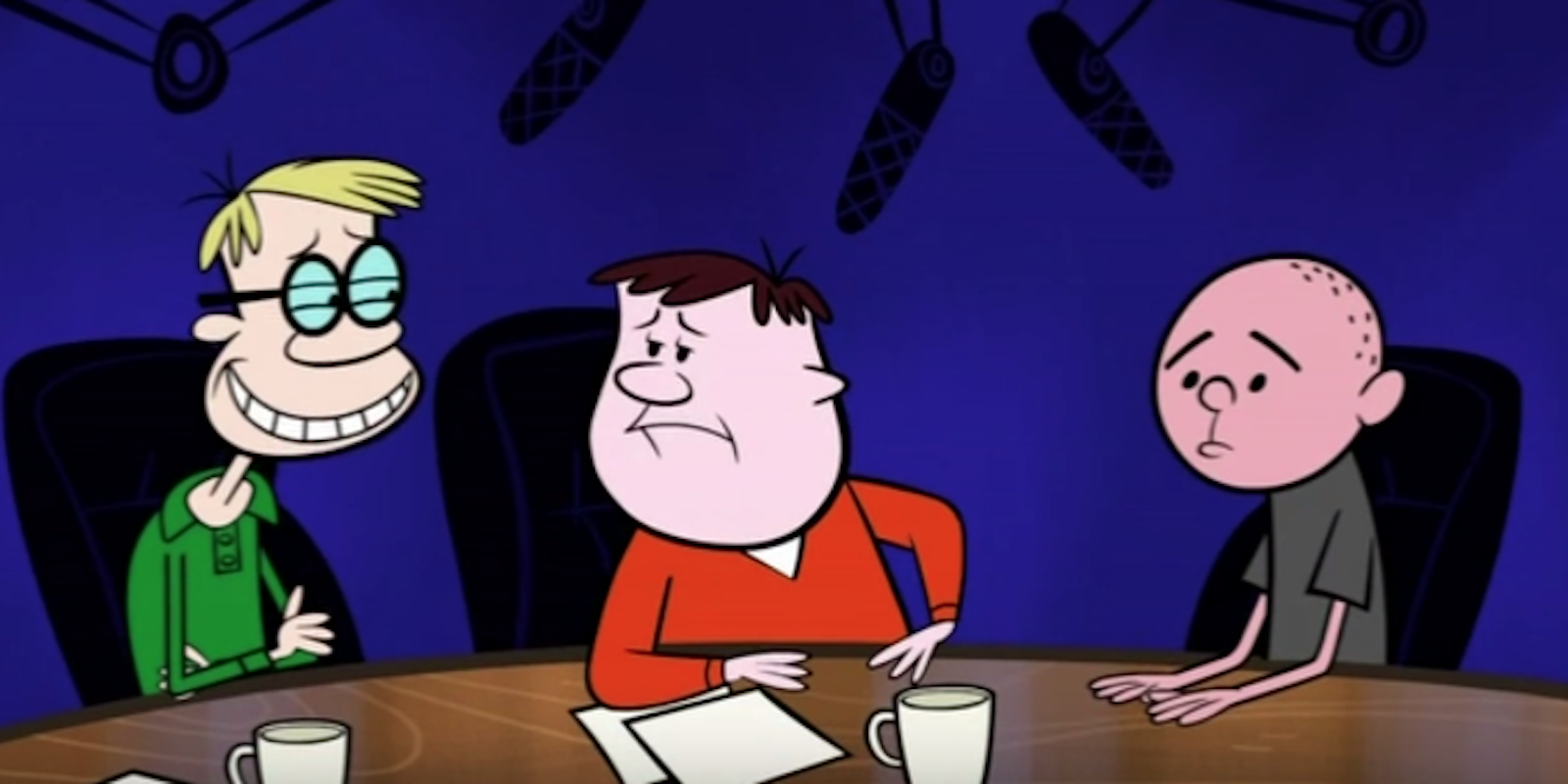People might watch Black Mirror for its dystopian predictions about the future, but it looks like some of the show’s newest plot lines were predicted years ago.
Season 4 of the series landed on Netflix Friday, and fans can’t help but notice that one episode closely follows ideas comedian Karl Pilkington talked about in a radio segment back in 2012. In a conversation with Ricky Gervais and Stephen Merchant on The Ricky Gervais Show, Pilkington mentioned two ideas he’d been mulling over: one for a medical invention he wished existed, and the other for a movie he wanted to pitch to Hollywood. Both ideas got him thoroughly mocked by his co-stars at the time, but five years later it looks like Pilkington is going to have the last laugh.
If you’re trying to avoid plot spoilers, this might be a good paragraph to skip. In the season finale, “Black Museum,” both Pilkington’s medical invention and his movie premise come into play in a major way. It’s a dense episode, with three plotlines slowly revealing themselves over the course of the hour. In one plotline, a character unexpectedly loses his wife in a car accident and is offered a chance to try some brand new technology. By opting into a new operation, he could have his wife’s consciousness transferred to his own brain, effectively keeping her alive. So while his wife would still be physically dead and unable to communicate with the outside world on her own, he would be able to hear her voice in his thoughts and talk to her as if she were alive. The same company that offers him this service just happens to have also developed a separate medical breakthrough in another plotline. The new invention—an elaborate helmet—allows doctors to feel their patients’ symptoms firsthand without actually suffering any of their injuries (to hopefully do a better job of diagnosing them).
The ideas are convoluted to read about but surprisingly easy to understand in video format. YouTuber Matt helpfully edited together the Ricky Gervais Show audio with the corresponding Black Mirror footage, and it’s tough to dispute the similarities:
Add to the case the fact that Pilkington is a British comedian (Black Mirror is a British series), and that both ideas appear in the same episode, and things start to seem referential.
“Black Museum” credits a short story by Penn Gillette as its inspiration, but the YouTube video makes a pretty strong case for adding Pilkington to that list. The video is currently No. 2 on YouTube’s worldwide trending chart.


